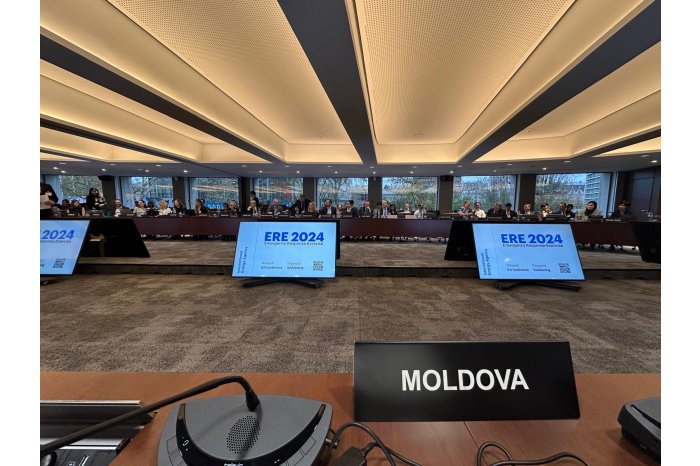Moldova plans to gradually introduce obligation of storing oil products
14:57 | 25.11.2024 Category: Economic
Chisinau, 25 November /MOLDPRES/ - Moldova plans to gradually introduce, till 2030, the obligation of storing oil products, which is to meet a quantity equal to 90 days of average daily net imports. A draft law to this effect, which transposes the European directive on the stores of oil products, has been unveiled by the state secretary of the Energy Ministry, Constantin Borosan, at an exercise of simulating a regional oil crisis, organized by the International Energy Agency (IAE) in Paris.
The storing of oil products will be managed according to a hybrid model – 50 per cent of the obligation of storing is to be allocated to a state institution subordinated to the Energy Ministry and 50 per cent – to importers. According to the draft law elaborated by the Energy Ministry, up to 60 per cent of the oil products’ stocks are to be stored on the territory of Moldova and the rest being possible to be deposited in the import country.
According to the Energy Ministry, the oil products stay the dominant source of energy in Moldova, with an annual consumption of the 1,130 ktep. According to the country’s energy balance, the oil products hold the biggest share of the final gross consumption of energy of 43 per cent, followed by natural gas with 22 per cent, biofuel and fire wood – 21 per cent and electric energy – 12 per cent.
Moldova was invited, for the first time ever, to participate in the exercise of simulation of an eventual regional oil crisis, even if it is not member of the International Energy Agency, after the Energy Ministry had signed a memorandum on cooperation with IEA in March 2024. ‘’The simulation showed how vulnerable Moldova is to a potential disruption of the deliveries of oil products, considering that the commercial stocks provide usually up to 20 days of domestic consumption. For instance, in May 2022, because of the logistic challenges triggered by Russia’s invasion in Ukraine, the commercial stocks of diesel and petrol were enough only for three days of current consumption,’’ Borosan said.
IEA was set up following the oil crisis from 1973, with the task to ensure the energy security, including through the collective intervention system which is to attenuate the impact of the deficit of oil products on the global market through the increase in the supply or cutting the demand. Also, each IEA member country has the obligation to hold stores of oil products equivalent to at least 90 days of net imports of oil and to be prepared to collectively respond to serious disturbances of the supply, which hit the world oil market.



